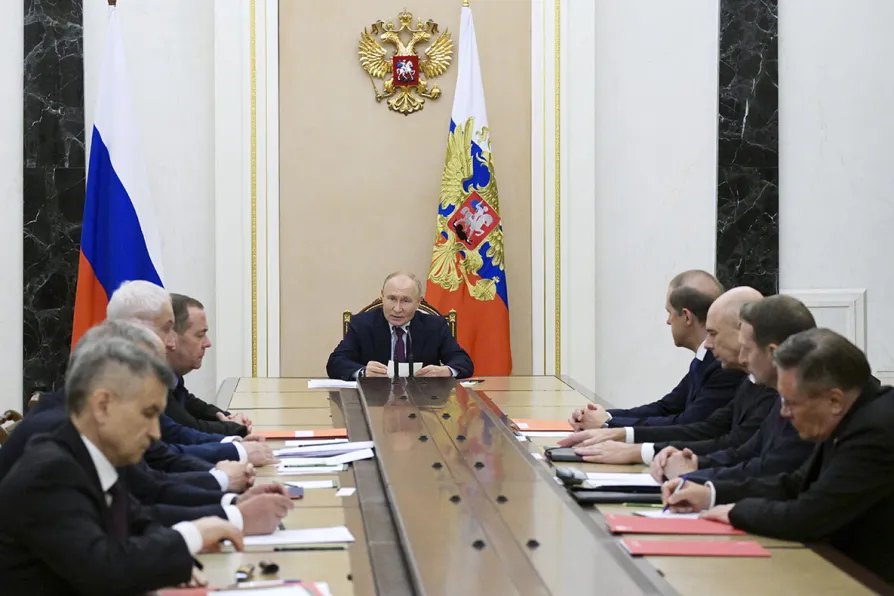Russia's Putin sets out new nuclear doctrine

 Russian President Vladimir Putin (centre) speaks at the Security Council meeting on nuclear deterrence at the Kremlin at the Kremlin in Moscow, Russia, September 25, 2024
Russian President Vladimir Putin (centre) speaks at the Security Council meeting on nuclear deterrence at the Kremlin at the Kremlin in Moscow, Russia, September 25, 2024
CHANGES to the Russian nuclear doctrine are intended to discourage Ukraine’s Western allies from supporting attacks on Russia, the Kremlin said today.
Spokesman Dmitry Peskov told reporters that the revisions of the document, announced by President Vladimir Putin on Wednesday, were a “warning signal to those countries about the consequences in case of their involvement in an attack on our country with various assets, not necessarily nuclear ones.”
Mr Putin had told a televised security council meeting that an attack on his country by a non-nuclear power with the “participation or support of a nuclear power” would be seen as a “joint attack on the Russian Federation.”
Similar stories














